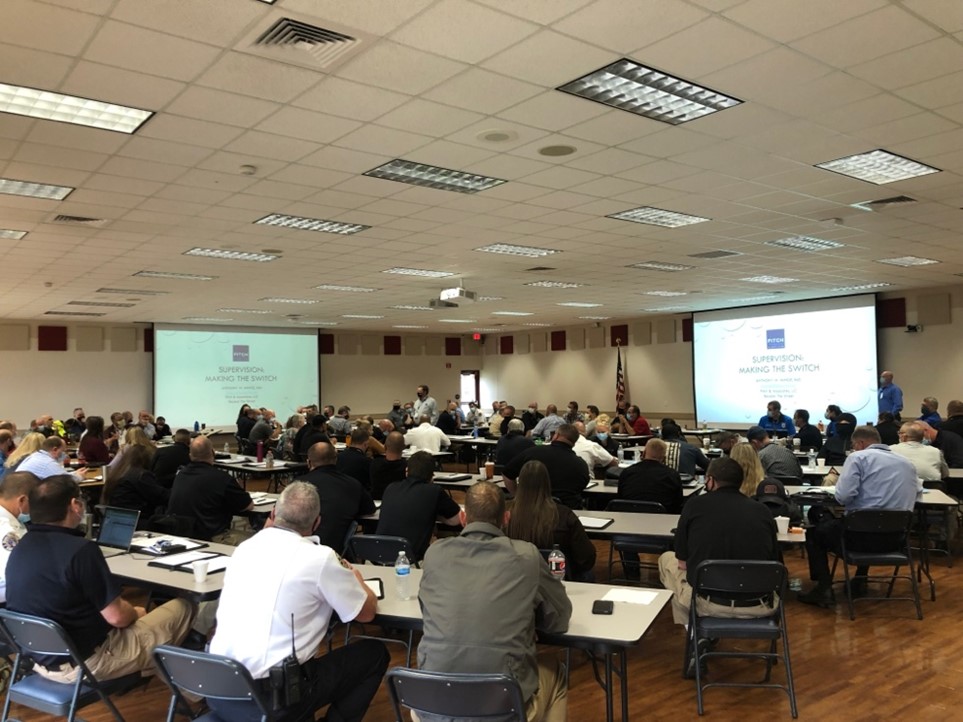Recently, local and EMS professionals from around the country attended Beyond the Street (BTS) Workshopto sharpen and enhance their leadership skillset. According to Anthony W. Minge, Ed.D., senior partner at Fitch & Associates, an emergency services consulting firm, cultivating leadership in the EMS industry is more important now than in any time in the history of the profession.
Recruitment and retention are trendy, top-of-mind topics in the industry. Top leaders are leaving the profession, because the old guard is retiring, but recruitment has not been replenishing at the same rate. Minge says, “We are losing a good amount of leadership from the people who built this industry.”
“We have to fill that void and build up the people, either the ones climbing the ranks or just arriving in the industry,” Minge continues. “We bring professionals together nationwide to share their experience but also to master some of the basic management skills to be successful from the very beginning.”
Organized by the Allegheny County EMS Council, BTS is a two-day workshop, created and presented by Fitch & Associates, during which attendees learn critical skills for a new supervisor now overseeing peers. Through a mix of lectures, case studies and role-playing, participants receive an introduction to some of the challenges field supervisors face, as well as strategies for navigating their role and earning the respect of the field staff they supervise.
“One of the biggest problems is that we promoted people into managerial positions but have not given them the resources to be at good at the job,” notes Minge. “They were a really great paramedic or a great EMT, but just because you are great at one thing doesn’t always transfer to the next job or level. You may have a basic skillset that will assist you in learning new skills, but if you’re not given the tools, you’re not going to get there. That’s what our educational programs are designed for and BTS provides just that, fittingly titled, ‘Beyond the Street.’
Problem solving and coaching skills in the interactive curriculum involve the following: directing and delegating, managing time effectively, diffusing complaints, building customer satisfaction, navigating conflict, as well as financial facts and strategies for front-line managers, to take your career to the next level.

Curt Neill, UPMC Prehospital Care senior manager and vice chairman of the executive committee to the Allegheny County EMS Council says, “What brought this to fruition was because we wanted to bring this class to street level providers and allow those who are starting in a leadership position or aspiring to be leaders. We are pleased that Allegheny County was able to partake but also six different states participated as well.”
Neill also serves as the chairman of the training committee for the council.
Neill continues, “We were also pleased that there were also seasoned leaders taking the class. This created a great networking opportunity to the seasoned, veteran leaders within the same room of the younger generation, who are taking on supervisor positions, too. It was a success.”
The attendees learn a lot from the faculty and instructors, but they have the mutual benefit from learning from their peers. In creating a natural networking experience, attendees are divided into groups for interactive work to examine case studies and problem-solving prompts to implement their collaboration of ideas, that in return, can be used to take home to use on their team.

